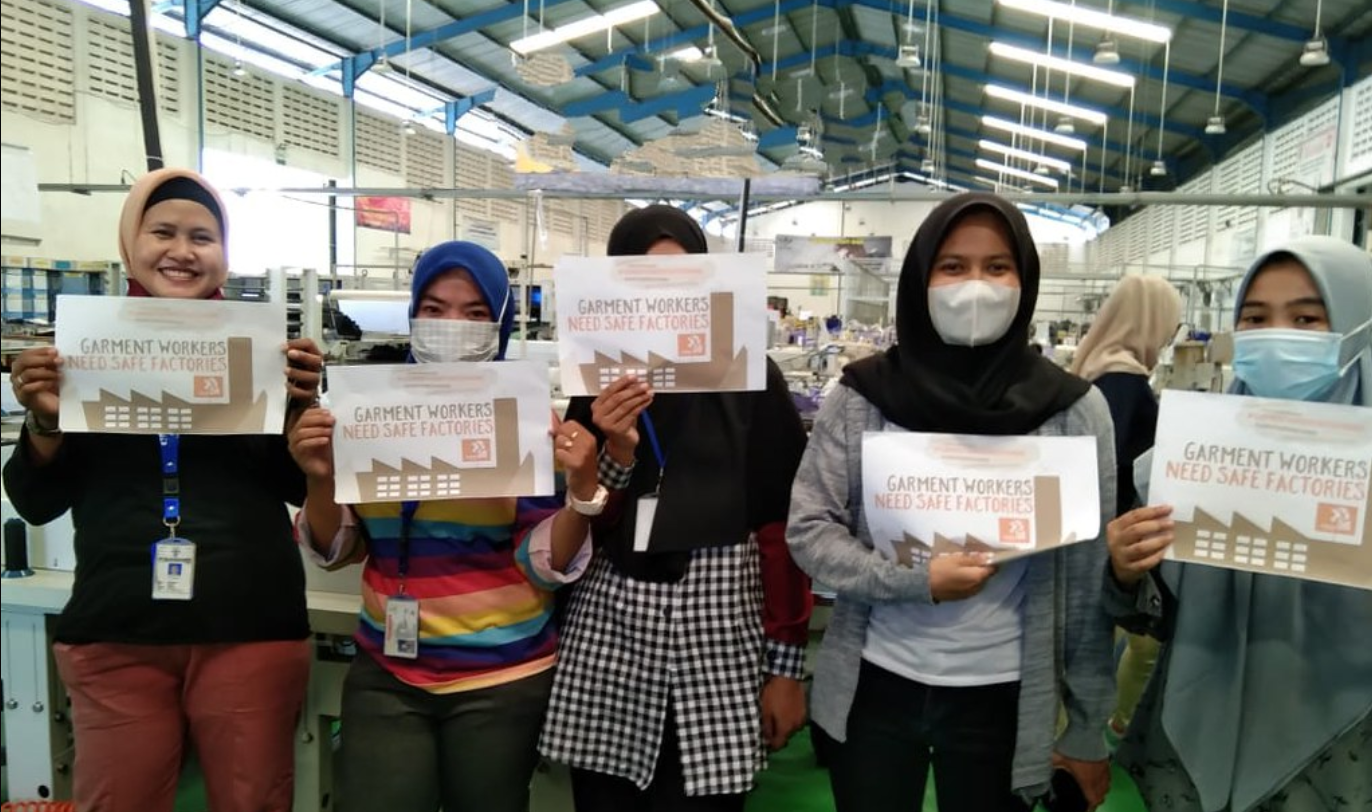23 April, 2021Out of the rubble of the Rana Plaza collapse, the Bangladesh Accord was created. The legally binding agreement has transformed factory safety in Bangladesh’ garment industry, saved lives, supported freedom of association and increased collective bargaining. The Accord expires at the end of next month, and it not only needs to stay, it needs to be expanded to cover garment workers worldwide.
24 April is the eight anniversary of the Rana Plaza collapse, where more than 1,100 garment workers were killed and many more were injured. And yet garment workers still need to raise their voices to demand safe factories; in the month of March alone, over 40 garment workers lost their lives in Morocco and Egypt due to unsafe factories.
As the Accord is nearing its end-date, global fashion brands must continue to guarantee safe working conditions at their suppliers in Bangladesh and step up to ensure that workers in their supply chains globally have safe factories to work in.
In an opinion piece, IndustriALL and Uni Global Union are putting a simple choice to brands - recommit to a binding agreement with the global trade unions that will continue making factories safe in Bangladesh and other countries or turn their backs on millions of garment workers and return to the failed system of self-certification.
We call on brands to step up and sign up, once more, to keep the legacy of the Accord in place. The lives of garment workers in Bangladesh and elsewhere are depending on you. They have not forgotten Rana Plaza – have you?
Taking action for safe factories
During the week leading up to 24 April, IndustriALL affiliates took action to reinforce the call for safe factories. Photos of the actions are found on Flickr and social media.
Together with our global framework agreement partners H&M, Tchibo, ASOS, Esprit and Inditex we held a conversation around safe factories, the Bangladesh Accord and achieving systemic change in the garment industry, which you can watch on Facebook.
